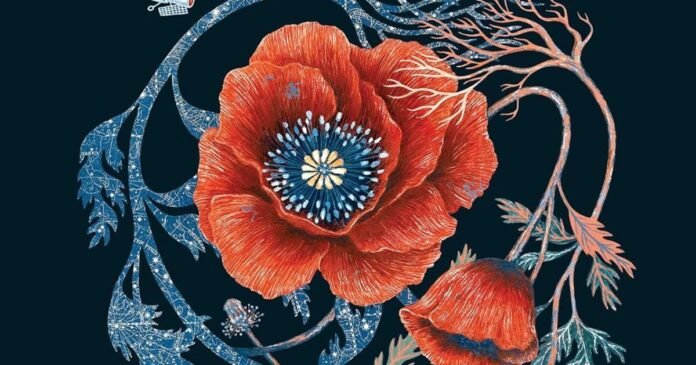On The Universe in Verse: 15 Portals to Wonder through Science & Poetry
by Andrea Elise
Hello, my name is Andrea Elise and I live in Amarillo, Texas.
When we think of science and poetry, we often attribute one discipline to our left brains and the other to our right brains.
But what if there was a way to explore both of these avenues of thinking by looking for the intersection between the two? What if inspecting this offers insights into the magnificence of the universe?
In her beautifully written and illustrated book of essays and poems titled, The Universe in Verse, Maria Popova highlights the search for truth and meaning through the lenses of both science and poetry.
Each chapter of the book begins with a short essay that explores a scientific theme, concept or figure. The essay is then paired with a poem on a similar subject.
The book covers a wide range of topics, including dark matter, the infinity of pi, the resilience of trees, the intelligence of octopuses and other phenomena.
Ms. Popova believes that science and poetry are both important to understand the world more intimately and to love it more deeply.
We continually search for truth and meaning during our short time on earth; that is human nature. To do so in only one way is limiting and, ultimately, frustrating.
The 15 essays and poems in the book explore mysterious marvels. Poetry speaks to time and to the existentialist view of our mortality. Science mirrors the search for truth in a different but companionable way.
Ms. Popova reminds us that for eons, we all assumed the Earth was the center of the universe and that we (humans) alone have consciousness. She applauds Jane Goodall, whose work began the paradigm shift of looking at our consciousness compared to other species on Earth.
Because of (or addition to) Goodall’s distinctive work, many neuroscientists cosigned the “Cambridge Declaration on Consciousness,” leading to the supposition that nonhuman animals can also be thought of as conscious beings.
She writes about how the octopus evolved into “one of this planet’s most alien intelligences, endowed with an astonishing nervous system, capacity to recognize others and form social bonds.”
We learn that the octopus has nine brains and how this amazing life form adapts, changes, belongs in its habitat with such quiet certainty and courage.
Her accompanying poem, “Impossible Blues,” ends with the following words: …”we plunged our prosthetic eye deep into the blue and found a universe of life. There, the octopus, godless and possible, lives.”
On a personal but related note, one of my fourteen nieces recently graduated university top of her class in astrophysicists. She was invited to share her research findings with other physicists in Padua, Italy.
That is impressive in and of itself, but this beautiful young woman also writes splendid poetry, the kind that makes one gasp in wonder how a person so young can already begin analyzing the world and her place in it.
When you finish reading The Universe in Verse, you will slow down, close your eyes and stand in awe at the intricate, labyrinthine and, ultimately complicated world we call our home for many decades.
This is Andrea Elise for the High Plains Public Radio Readers Book Club.






